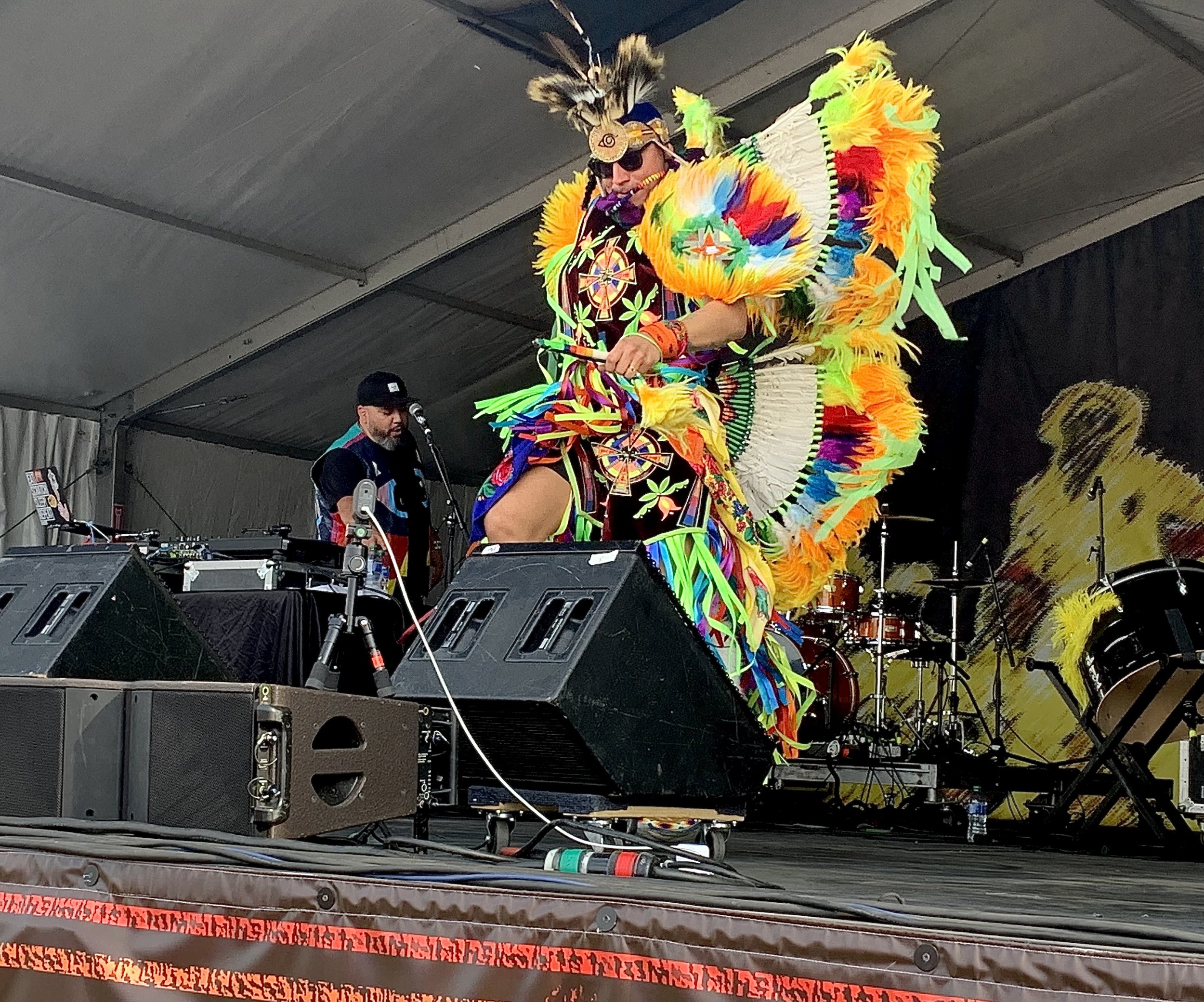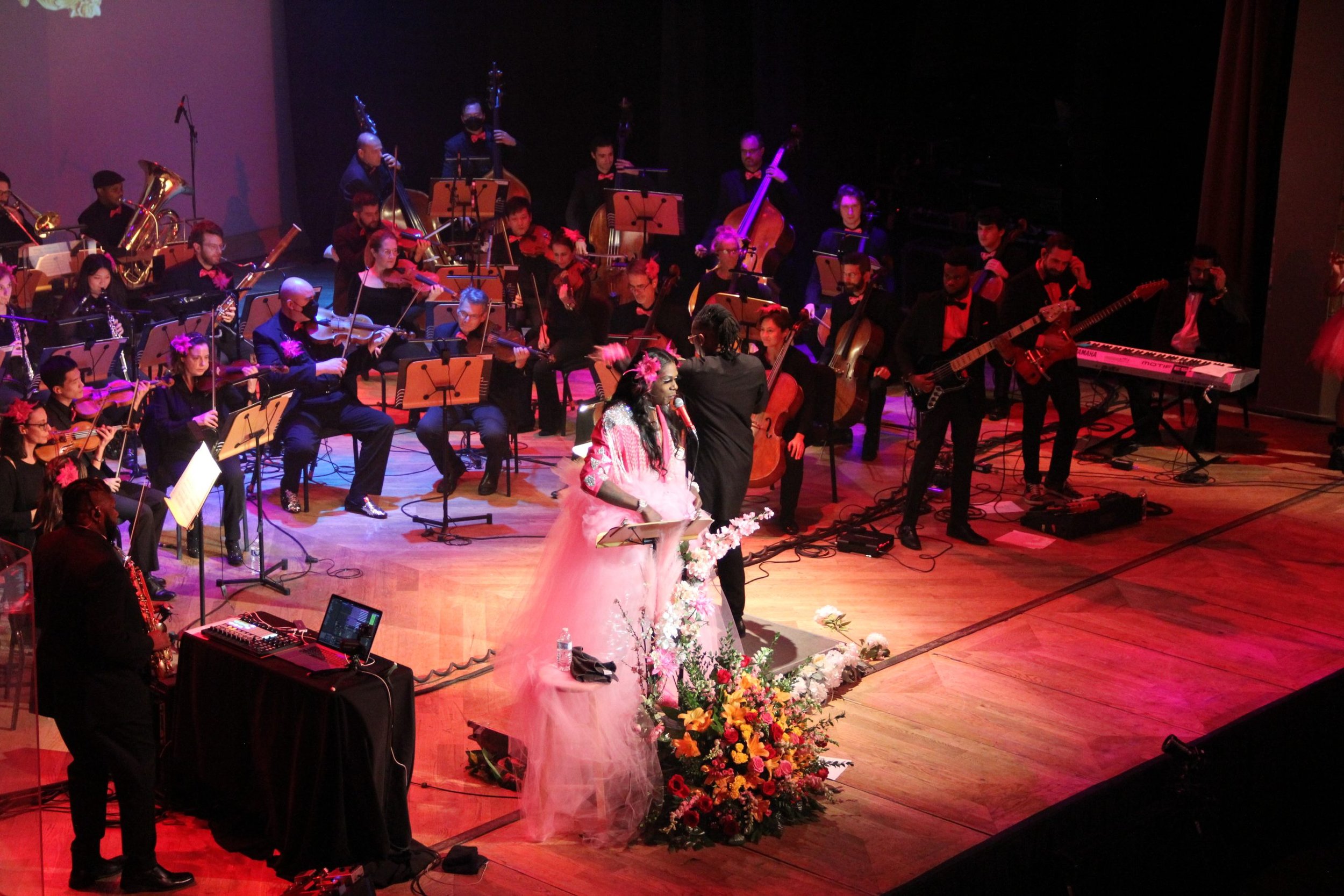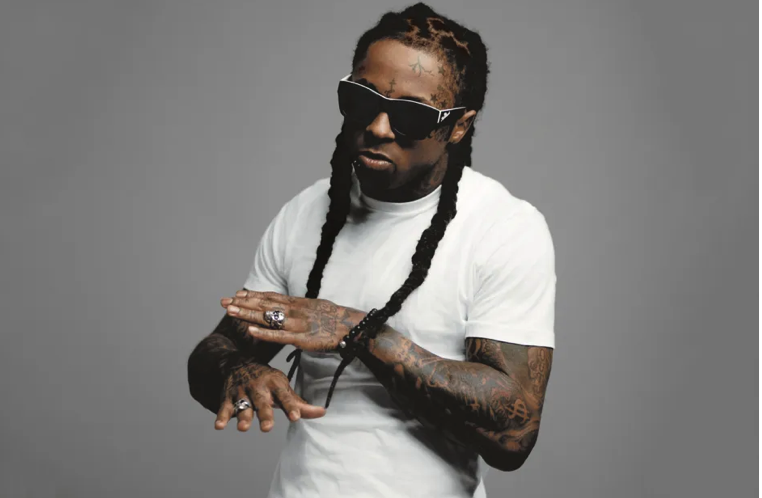Jonathan Brown is Aggressively Himself

The New Orleans-based rapper/poet/spoken word artist addresses the challenges of living with slashes or hyphens on his new album, "Aggressively Vulnerable."
“One of the premises of the album is that it’s cool to be yourself.”
Hip-hop artist Jonathan Brown would say that. His gig is to be as himself as possible, an idea that underlies the title his sixth release, Aggressively Vulnerable, which dropped earlier this summer. Musically, he has staked out a very specific place, subscribing to old school rap values balanced with an MFA holder’s belief in poetry. Brown has the degrees including an MFA from University of New Orleans, and even if you didn’t know that, you’d guess it because he released a limited edition poetry book with the lyrics to the songs to accompany Aggressively Vulnerable’s release.
But Brown would likely stress the importance of being yourself even if none of the above were true. In conversation, he’s direct, wide open, and maybe wide-eyed, though that might be optical illusion created by his glasses. On his website, Brown describes himself as “a rhinoceros” on stage, “trouncing around,” and when we talked over coffee, he jumpstarted the conversation as if we might never go deep if we didn’t start there. Within minutes of sitting down, he says, “The art that I make is a niche thing. I don’t even consider myself entertainment.”
Brown’s hardly the first rapper to have one foot in the academy and one foot in the streets, but he makes less of an effort to hide his book learning than many in his situation let on. His website lays out his background in spoken word and slam poetry, and you can hear it in his songs. His lines are very focused on meaning, so much so that the inter-line playfulness that animates much hip-hop is overruled by the unmistakable desire to make his reality clear. A sense of purpose drives every syllable, and it’s echoed in his delivery. Instead of the blunted, mumbled flow that is the 2017/2018 default setting in rap, Brown spits as if he has just knocked off a traveler’s mug of truckstop espresso. He’s not speedy, but he’s driven.
Throughout the album, he stakes out positions that are clearly personal. In “Metaphors,” he deals with his choices. “I speak in metaphors / it’s not a marketable skill,” he starts. “I’m scared of most of my old friends / ever since I told them I quit drinking,” he admits in “I’m Possible.”
Aggressively Vulnerable isn’t purely confessional, though. In “Wash That Chicken,” Brown thinks about art as a hustle. “Washing a chicken isn’t art / unless you wash the chicken in an art museum.” It’s a position you might take if your art doesn’t get the same acclaim and respect as others, but Brown doesn’t sound like he’s rationalizing away his indie/underground status. He’s thinking about the context that art—and by extension, his art—lives in, but his delivery and the mock-metal electric guitar that accompanies it suggests that he can still see humor in the situation.
Brown understand that his stature is largely a function of being a tweener, someone who speaks strongly to a very specific audience. Because he’s not purely rap, rock, punk or poetry, finding his people has been a challenge, but he has found them—appropriately—in in-between spaces. His fall tour is dotted with house parties, alternative arts spaces, warehouses, and punk clubs in addition to conventional music clubs. For some gigs, he leaves his sampler in the car and performs unaccompanied—a move that helps fill out a road trip and emphasizes his hybrid-ness.
“Some of my favorite shows are when I get to wear both hats,” Brown says. “There’s this spot in Huntsville, Alabama called Lowe Mill. It’s huge. It’s a warehouse that has been outfitted as artists’ studios—painters, weavers, everything you can imagine. It’s an artists’ hub, and in the bottom is this theater, The Flying Monkey, and I do an academic reading from my thesis, then I’ll put the book down and do some spoken word, then I’ll pull the sampler out and bang on that and rap over it,” he says. “I get to do all those things.”
A relationship like the one he has developed in Huntsville came with time. Brown is playing a long game and will take some gigs that don’t pay well to establish a working relationship that will pay off better in the future. In Huntsville, he first made contact with organizers as a poet and was part of a poetry night. When they learned he also made music, they wanted to book him for that too. Brown sees the fruits of that kind of approach each time he tours as he builds audiences and improves his paydays, but the anytime/anywhere approach can backfire. One night in Orlando, he found himself booked in a karaoke bar where the four people in the room just wanted to sing Madonna songs and didn’t care about anything Brown had to offer. “I just fucked up their night. That’s all I did,” he remembers, laughing.
Nights like that come with committing hard to your art. Brown also taught school until almost three years ago when he decided that trying to balance his gigs didn’t work. He was often tired during the day after performing at night, and he couldn’t get his music career beyond the hobby phase while trying to work a day job too.
He certainly wouldn’t have completed Aggressively Vulnerable as a part-timer. He worked with producer Daniel Brown—no relation—on the album, but when the owners sold the house that Daniel Brown lived and worked in, he had to move his home studio in Jonathan Brown’s house Uptown. The time lost meant that they had to grind out 10 and 12-hour days to finish on schedule because the Aggressively Vulnerable tour was booked. He needed to have the tour’s centerpiece and salable object not only done but done in time to get vinyl versions pressed.
While planning and working on the album, Brown envisioned it coming out on Sage Francis’ Strange Famous label. Brown had opened a number of times for Francis, who also straddles the poetry/rap/spoken word worlds, and he had friends on the label. Brown thought he and his new music were a natural fit for Strange Famous, and he wrote Francis a heartfelt letter telling him so. He expressed his admiration for Francis and his label, but Francis didn’t hear the connection. In a very nice letter, he told Brown that there were too many poems, and that At the heart of it, we are a rap label.
Brown’s first response was frustration. “I’m not good enough yet again,” he thought. His attitude quickly changed, though. “The turn-down was the fire I needed to go forward.” He instead started a crowdfunding campaign that paid for the album and more.
“Some see the music game like it’s wrestling, putting on characters,” he says. “My music is definitively not that.”






